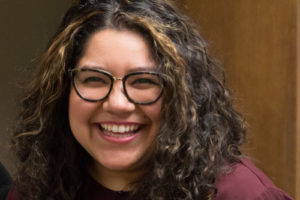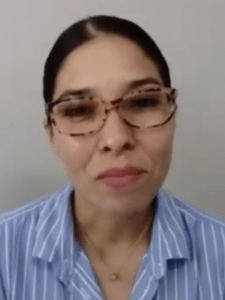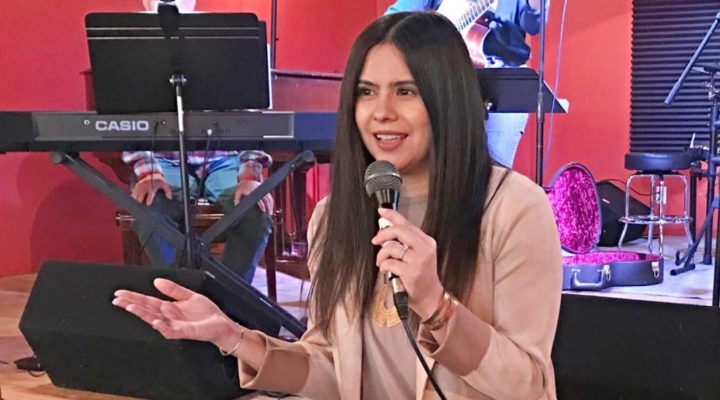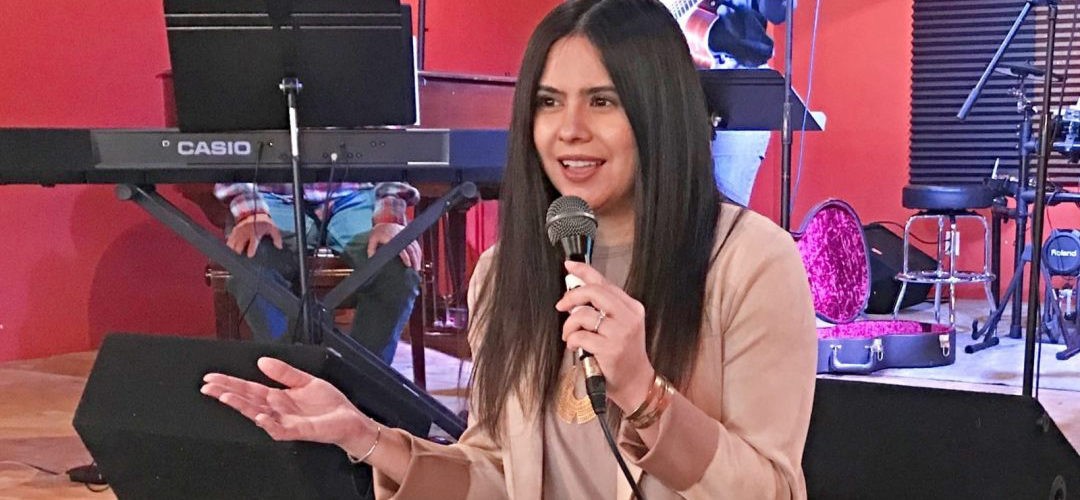Growing up female in a Hispanic Baptist family and community influenced by white Texas culture exposed Alyssa Aldape to the influences of colonialism, race and sexism on her faith and identity, she said during a recent webinar hosted by Baptist Joint Committee for Religious Liberty.

Alyssa Aldape
Just how powerful those and other influences are became increasingly clear as the Baptist minister learned and moved in settings where she often was categorized by her gender and ethnic identity, Aldape said during BJC’s “Voices of Hispanic and Latin American Faith Freedom” Zoom event posted on YouTube.
“Recognizing the close relationship American Christianity has with whiteness was a big eye opener and game changer for me,” said Aldape, a contributing writer for Good Faith Media and who previously served in pastoral roles at churches in Washington, D.C., and Georgia.
American Christianity must break away from its racial preference just as it needs to abandon its male-dominated cultural biases, she said. “My God does not have a gender or a race, so I cannot identify with a Christianity that says one is better than the other.”
 Aldape was joined in the Sept. 30 conversation by Aurelia Dávila Pratt, lead pastor of Peace of Christ Church in Round Rock, Texas, and Erika Perez, a lecturer at the University of Texas Rio Grande Valley and a licensed professional counselor. The discussion was moderated by Charles Watson Jr., director of education at BJC.
Aldape was joined in the Sept. 30 conversation by Aurelia Dávila Pratt, lead pastor of Peace of Christ Church in Round Rock, Texas, and Erika Perez, a lecturer at the University of Texas Rio Grande Valley and a licensed professional counselor. The discussion was moderated by Charles Watson Jr., director of education at BJC.
On the issue of gender, the panelists shared about the obstacles they face as women in ministry and as women in male-dominated Hispanic communities.
“There is a certain demeanor that women in general are expected to adhere to, and anything above that is considered spicy, angry, sassy, snarky, bossy and bigger four-letter words. And I think a lot of that is wrapped up into the sexism and racism in our Christianity,” Aldape said.
Moving beyond that also requires recognizing and rejecting the patriarchal attitudes that dominate the American church, she added. “Patriarchy does not help any of us. It is an ongoing journey of decolonizing faith and trying to move away from the idolatry of patriarchy within the faith.”
Dávila Pratt described the patriarchal assumptions she has encountered as a woman in ministry, even in moderate and progressive Christian settings. A common one is to be asked if she is married to whatever man happens to be standing closest to her.
A common (assumption) is to be asked if she is married to whatever man happens to be standing closest to her.
“People just cannot fathom in their minds that you can be a leader standing on your own as a woman. It’s so hard for people,” she said.
Christians must seek “to expand our image of God … by expanding our pronouns. If we only use ‘he/him’ and ‘Father’ over the course of our whole lives, that affects how people see women and men and everyone in between and beyond,” Dávila Pratt said.

Erika Perez
In theory, it shouldn’t be so hard since just about everyone agrees that God is gender and race neutral, she added. “But when it comes to actually practicing that in your worship songs, in your Lord’s Prayer, in your liturgy, then it hits the fan. People get really uncomfortable with that.”
Perez said she has encountered those attitudes in Hispanic church settings where “faith is male dominated” and there is a “lack of inclusivity of females in those spaces of leadership.”
To push through those obstacles, “I home in on how I can contribute” to the community “regardless of my gender and race.”
“The Hispanic Baptist faith was the faith that taught me that God was good, and that God called me good, and it showed me that all of us are capable and called as leaders.”
That practice is informed by a theology shaped by the same community that she both serves and can struggle in, Perez said.
It was in family and community settings that she learned to care for others. “I can see how those positive traits are in line with the theology of God and how God calls us to be good to others. God calls us to protect people, the elderly and children.”
Aldape said it was her religious upbringing that instilled values of racial and gender fairness. “The Hispanic Baptist faith was the faith that taught me that God was good, and that God called me good, and it showed me that all of us are capable and called as leaders.”
The danger to religious freedom for Hispanic faith and culture, Dávila Pratt said, lies in the separation from historic roots and its reliance on white and machismo influences. “I think that’s a threat because we ingest this colonized version of faith that perpetuates Christian nationalism within our communities.”
Related articles:
Black Baptist women in ministry and the principality of patriarchy | Opinion by Aidsand Wright-Riggins
Q&A with Meredith Stone about Baptist Women in Ministry
Sexual harassment at 30,000 feet | Opinion by Meredith Stone


